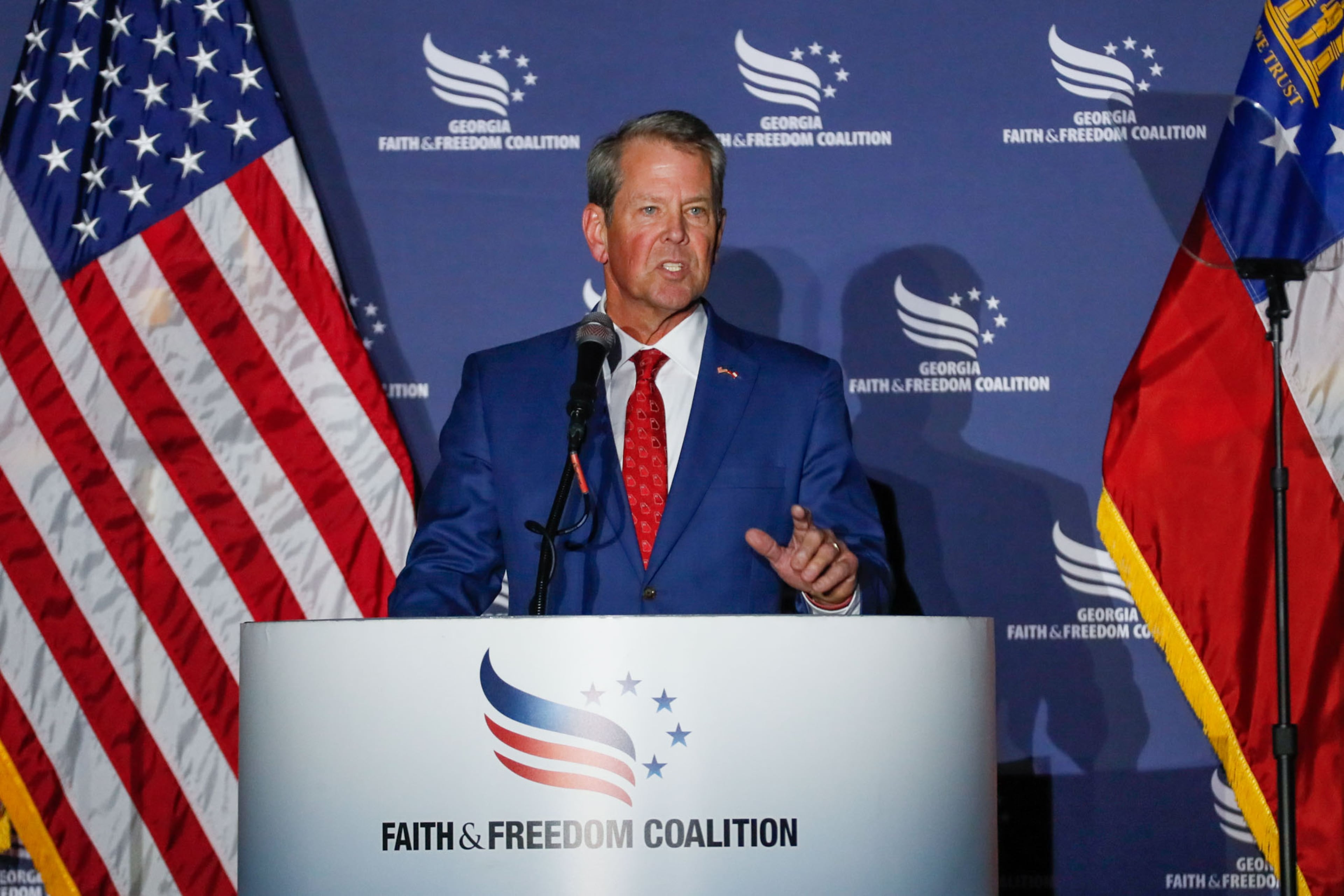Congress in disarray as Georgians press for disaster relief
WASHINGTON — A bipartisan spending bill that includes Hurricane Helene relief for Georgians was in tatters Thursday after President-elect Donald Trump warned Republicans it would be a “betrayal” to back the package ahead of a looming government shutdown.
U.S. House Speaker Mike Johnson unveiled a new, scaled down government funding bill late Thursday, but the Trump-backed plan was decisively rejected 174-235 by a coalition of dozens of Republicans who joined almost all the chamber’s Democrats.
The revolt against both proposals left Georgia leaders grasping for a way to secure emergency funding for recovery from Helene, which inflicted an estimated $5.5 billion in damage to Georgia’s agriculture and timber industry.
“They need to get something done. Whatever the mechanics of that are, they can work out. But it needs to include disaster relief,” Gov. Brian Kemp said in an interview Thursday. “We’re going to have big problems in our state if we do not get that done.”
A day earlier, Kemp encouraged Congress to approve the “vital disaster relief funding,” an endorsement that made him one of the few senior Republicans in Georgia to vocally support the bipartisan bill.
But the second-term governor recalibrated on Thursday, telling The Atlanta Journal-Constitution the “sole purpose” of the endorsement was because the emergency aid for Georgians was folded into the spending bill.
“If you’re one of these farmers and farm families that basically lost your whole operation, you’re not too worried about all that,” Kemp said. “You’re just worried about getting some help.”

Trump ordered his allies to blow up the bipartisan deal hours after Elon Musk, the billionaire tech executive empowered by the president-elect to cut deep into federal spending, warned that any Republican who voted for it would face political retribution.
That fanned an already brewing GOP rebellion that included three of Georgia’s most conservative U.S. House members, with Reps. Marjorie Taylor Greene of Rome, Andrew Clyde of Athens and Mike Collins of Jackson all vowing to defeat the package.
What’s at stake
The torpedoing of the package leaves lawmakers little time to hash out a deal. Congress has until late Friday to approve a bill that can pass both the GOP-led House and Democratic-controlled Senate before a 12:01 a.m. Saturday deadline.
At stake is at least $2.3 billion in funding for Georgia, according to an analysis by House Democrats. That includes nearly $700 million in relief for farmers and growers, $390 million for water system improvements and $282 million for other infrastructure projects.
An additional $160 million would go to finance repairs for military installations in Georgia and about $100 million for disaster loans for businesses, homeowners, renters and nonprofit agencies. Other funding includes money to repair child care centers, parks and prisons.
If negotiations fail, a government shutdown would lead to the closure of national parks and monuments before the holiday season, and many employees at federal agencies would be sent home.
Other essential agencies, including the FBI, would remain open. And Transportation Security Administration officers would continue to staff airport checkpoints, while Medicare and Social Security recipients would continue to receive their benefits.

As lawmakers feuded, the pressure campaign in Georgia escalated. Attorney General Chris Carr, a GOP candidate for governor in 2026, told “Politically Georgia” that Congress needs to compromise.
“We need help, and the (continuing resolution) is the way to do it,” Carr said of the stopgap funding measure, adding: “It has critically important funding, and I stand arm in arm with Gov. Kemp on that.”
Lt. Gov. Burt Jones, another Republican expected to also compete for Kemp’s job, said the political infighting in Congress “is exactly why people hate Washington.”
“We need Congress to provide hurricane relief to devastated communities, not waste money on pet projects,” he said. “Period.”
Democrats warned the fallout of a shutdown could spell misery for many Americans — and that Republicans were to blame. House Minority Leader Hakeem Jeffries accused his counterparts of “unilaterally” breaking a bipartisan agreement.
And state Rep. David Wilkerson, a Powder Springs Democrat, said Musk’s criticism of the spending compromise is a taste of what’s to come when Trump takes office in January.
“This is what the next four years is going to look like,” Wilkerson said. “You have a bunch of billionaires who are not affected by shutdowns like others.”
‘Dysfunctional’
Georgia Republicans, meanwhile, elbowed right back. State Sen. Blake Tillery, who chairs the state Senate’s budget-writing committee, said residents in his hurricane-ravaged southeast Georgia district can’t afford to wait longer for relief.
He singled out a provision tucked into the compromise measure that would give federal lawmakers their first pay bump since 2009 as an example of misplaced priorities.
“Washington is dysfunctional. Why should a congressional pay raise be a part of disaster relief for Georgians?” Tillery said. “I am furious we can pass stand-alone bills to give money to foreign nations but can’t do stand-alone bills to give disaster aid to Americans.”

The pushback from key GOP members of Georgia’s delegation was even sharper. Collins declared “no amount of lipstick would make this pig pretty.” And Greene floated the idea of Musk replacing House Speaker Mike Johnson, who engineered the package.
Kemp, meanwhile, said he was still haunted by the fight for federal relief after Hurricane Michael caused generational damage to farming communities across South Georgia in 2018.
It took roughly a year of congressional wrangling during Trump’s first term as president to secure the aid.
“Everyone remembers the nightmare that was and the politics that were played,” said Kemp, who said he worries the same gamesmanship is taking place now while the state’s agriculture industry is in “even worse-off shape.”
“There’s a lot of really good producers that, if they don’t get help and get it soon, they’re not going to be able to plant this spring.”





